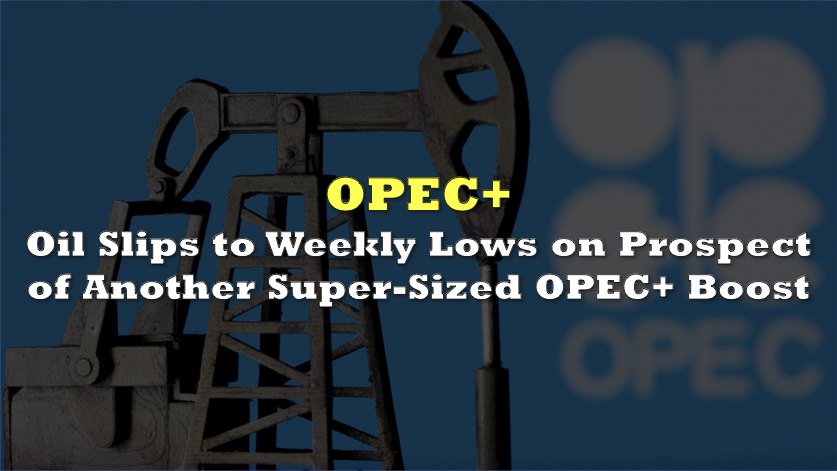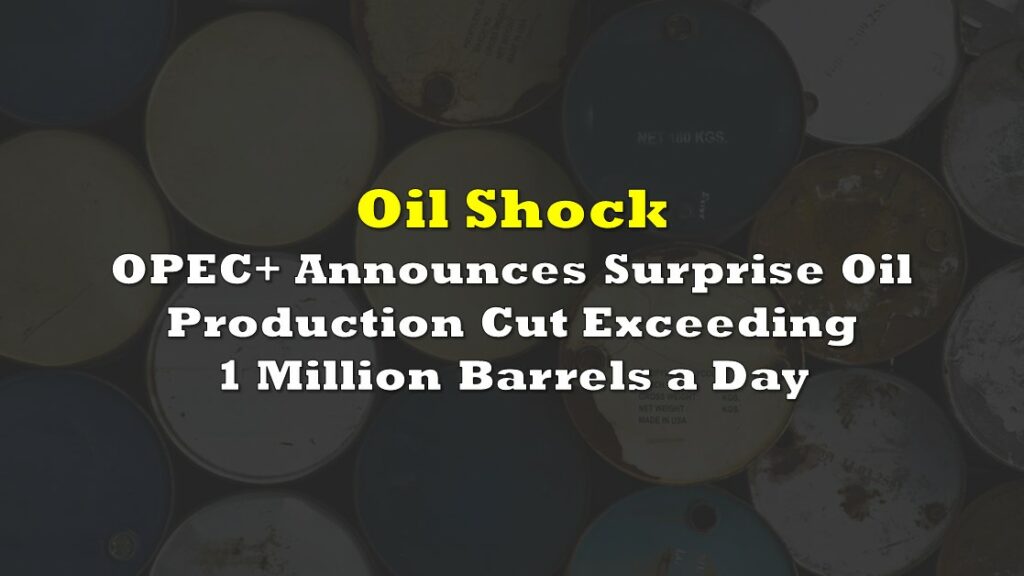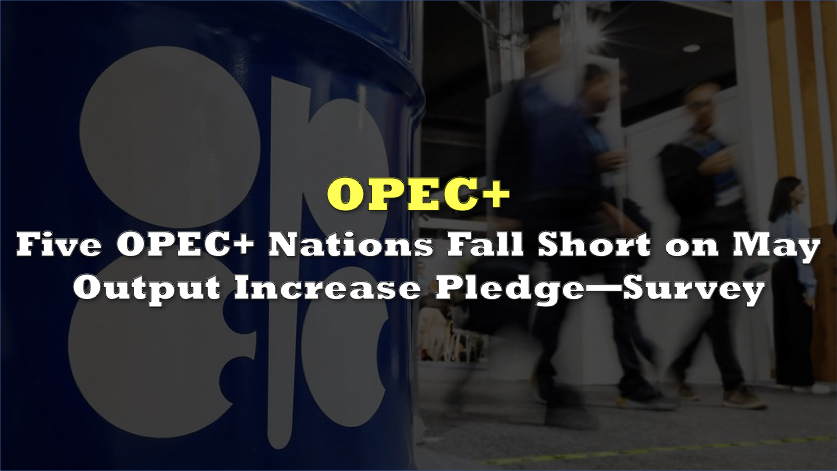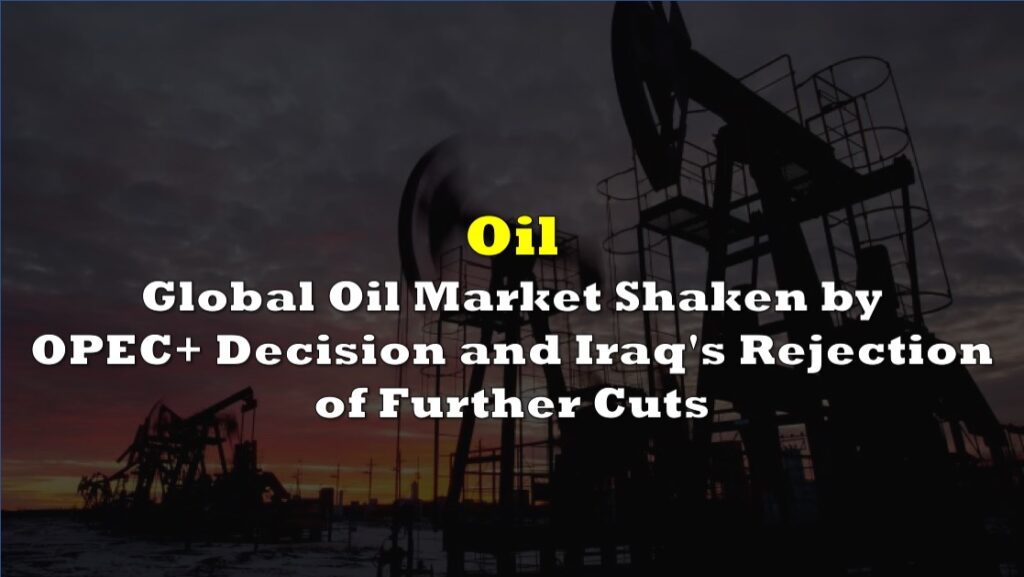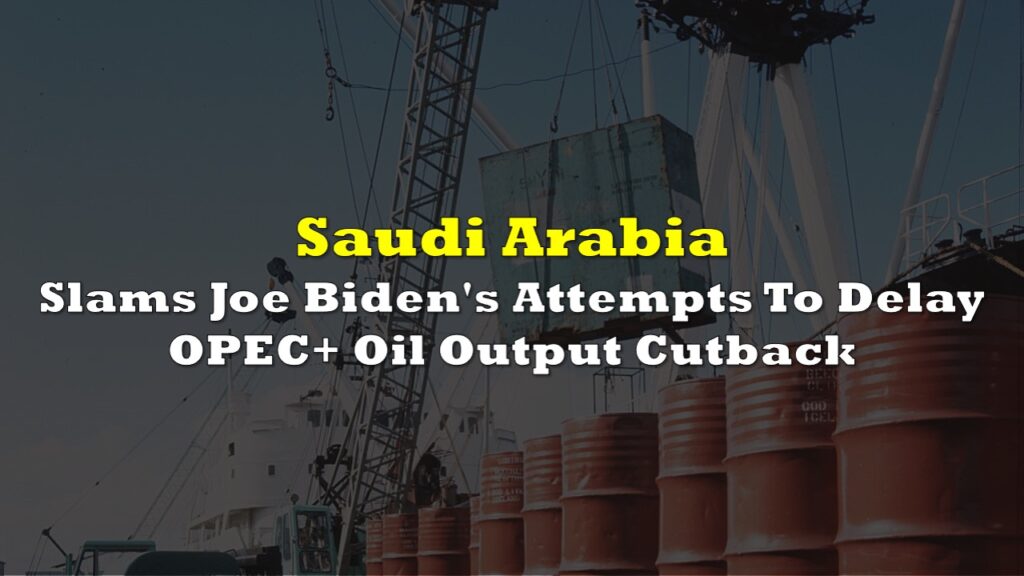Oil prices extended a three-day slide as OPEC+ members weighed a third consecutive super-sized supply boost. Delegates reported that the group is considering raising output by 411,000 barrels per day from July—roughly triple the initially scheduled 137,000 bpd—and that any approval at the June 1 meeting would mark the third straight month of extra production.
Brent crude dipped to the lowest level in a week, trading near $64 a barrel, while WTI slipped toward $60 a barrel as traders digested the potential supply surge. The decline comes amid headwinds from the US-led trade war, which has stirred fears of slower global growth and weaker energy demand.
The looming volume increase appears aimed at disciplining quota-violators and preserving unity, but it raises fresh glut concerns.
“We’re seeing the market reacting to evidence that OPEC is letting go of a strategy to defend price in favour of market share,” noted Harry Tchiliguirian of Onyx Capital Group. “It’s a bit like taking off a Band-Aid; you do it in one fell swoop.”
Observers warn that any return of Iranian barrels, once sanctions ease, could further swell global supplies.
Department of Energy data showed commercial crude inventories rising for a second consecutive week, while gauges of gasoline and distillate demand remained weak even as the summer driving season approaches. Rising stockpiles have compounded downward pressure on oil, suggesting that further OPEC+ output injections could accelerate price erosion.
Broader markets also felt strain: US stocks, government bonds, and the dollar all declined on concerns over Washington’s ballooning deficit, with Asian equities following suit. In parallel, the UK urged Group of Seven allies to tighten the price cap on Russian oil, arguing at a finance ministers’ meeting in Banff, Canada, that lower caps are necessary to squeeze President Vladimir Putin and hasten an end to Moscow’s war in Ukraine.
All the while, a tightening macro backdrop—from climbing US 10-year Treasury yields to heightening geopolitical risks—threatens to sap demand growth. Lower prices may keep OPEC+ under pressure, yet any flare-up in the Middle East, such as a potential Israeli strike on Iran’s nuclear sites, could abruptly reintroduce a risk premium.
Information for this story was found via Bloomberg, ZeroHedge, and the sources mentioned. The author has no securities or affiliations related to the organizations discussed. Not a recommendation to buy or sell. Always do additional research and consult a professional before purchasing a security. The author holds no licenses.

